Interview
Chinese New Year: Twisted meets the people behind London’s Chinatown hotspots
01 Feb 2022
9m
There are few Chinese cultural hubs quite as infamous in the UK as London’s Chinatown.
Nestled between Covent Garden, Theatre-land and Piccadilly Circus, the lantern-filled roads surrounding Gerrard Street house more than 100 restaurants, takeouts and shops.
And you’ve likely experienced a few of them, whether you’ve grabbed a Jian Bing from an unassuming hole-in-the-wall, dined out on Cantonese food followed by a slightly-messy karaoke sesh, or stopped for a casual spot of dim sum and a cocktail or two.
But who are the people behind our favourite Chinatown hotspots? To honour the Chinese New Year, Twisted decided to dig a little deeper.
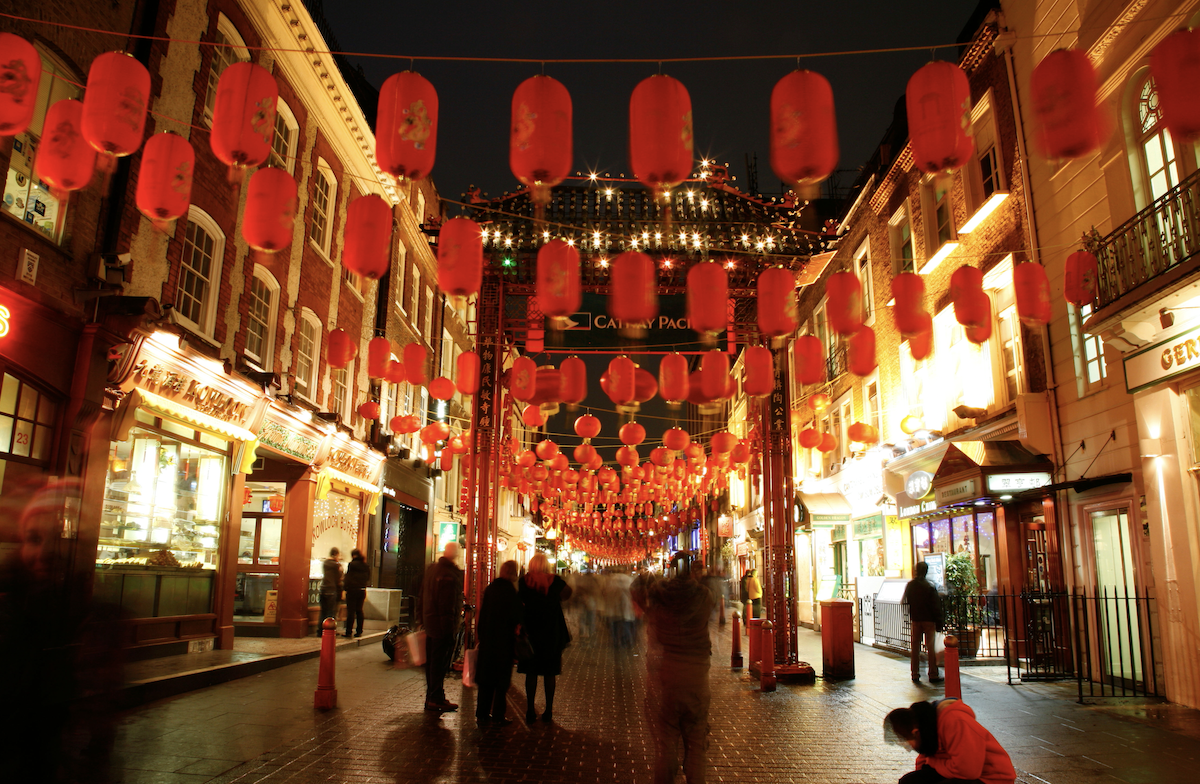 Chinatown is the centre of London’s Chinese community (Credit: Alamy)
Chinatown is the centre of London’s Chinese community (Credit: Alamy)
READ MORE: Check out Twisted’s crispy shredded Chinese chicken recipe
Geoffrey Leong (Leong’s Legend, Dumplings Legend)
In Chinatown, Geoffrey Leong needs no introduction. He moved to the area from Hong Kong at the age of ten, with his restaurateur parents, and he’s grown up immersed in the food culture ever since.
Whilst his family started off with fine-dining restaurants in Hampstead and Mayfair, they later opened Chinatown’s Leong’s Legend and Dumplings Legend, which Geoffrey runs today.
“We felt there was much needed opportunity to engage with the authenticity of the cuisines and to move away from a more old fashioned Chinatown,” he says.
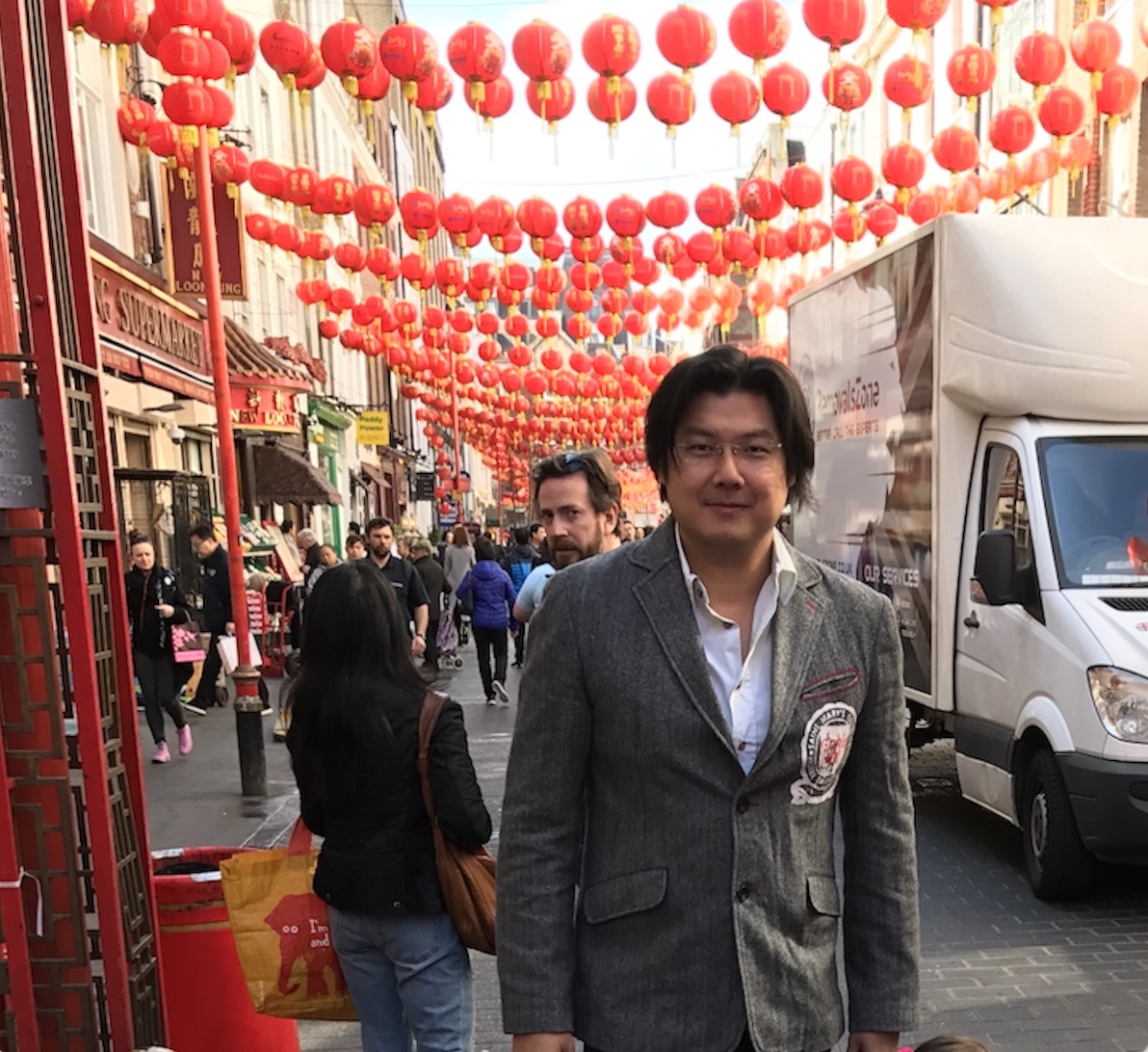 Chinatown veteran Geoffrey Leong owns two restaurants there (Credit: Geoffrey Leong)
Chinatown veteran Geoffrey Leong owns two restaurants there (Credit: Geoffrey Leong)
“Where we come from in Hong Kong, it’s a very international place, with a lot of regional cuisines, and when you go out to eat, there’s a real journey of trying a little bit of everything.
“But Chinatown just didn’t have that. We wanted to redraw the map to offer really specific dishes that no one else does.”
When Leong’s Legend launched just over a decade ago, it did just that, serving Taiwanese street-food inspired by Geoffrey’s mother’s heritage, served in a minimalist, laidback setting.
“It’s a very different menu. You won’t find your sweet and sour and stuff like that.
“It’s all about Taiwanese cuisine, which is very influenced by Shanghai style food,” he says. “We did hotpots, bao and oyster pancakes, and there were huge queues of people coming to us, because we moved away from this whole idea of what Chinese food is.”
 Leong’s Legend offers up regional Taiwanese dishes, like these sticky rice parcels with shaoxing wine infused chicken and salted egg yolk (Credit: Instagram/ Leongs Legend)
Leong’s Legend offers up regional Taiwanese dishes, like these sticky rice parcels with shaoxing wine infused chicken and salted egg yolk (Credit: Instagram/ Leongs Legend)
This success prompted Dumplings Legend one year later – a restaurant founded around the same ethos, but instead of just focusing on one area, it takes on a mammoth task of offering up dishes from every single Chinese province.
There’s everything from Peking duck to Kung Pao chicken to pork and crayfish Xiaolongbao, and a whopping 47 variations of dim sum.
“Chinese people get bored easily,” he laughs. “We don’t eat the same thing every night after work, and we don’t have our favourite dishes, we have our favourite 50 dishes.
“So, our menu is kind of like ordering canapés in the UK, we wanted to create little mouthfuls that all taste completely different, and you can order as many as you want.
“We will never tire of our desire to eat in Chinese culture. There is a dynamic diversity to Chinese food, and I think showing that is the future of Chinatown.”
 Dumplings Legend is about showcasing the variety of Chinese food (Credit: Joanna Freedman/ Dumplings Legend)
Dumplings Legend is about showcasing the variety of Chinese food (Credit: Joanna Freedman/ Dumplings Legend)
READ MORE: 5 common mistakes people make about Chinese food
Eric Yu (Opium)
“Even if I grow up to be 150 I will never call myself English, because every morning when I wake up and look in the mirror, I see a Chinese person,” says bar and restaurant owner, Eric Yu.
You can certainly see this proud cultural identity in his cocktail bar and dim sum parlour, Opium.
It’s designed to look like an upmarket take on a 19th century Chinese opium den, with apothecary bottles behind the bar and East Asian antiques used to decorate throughout.
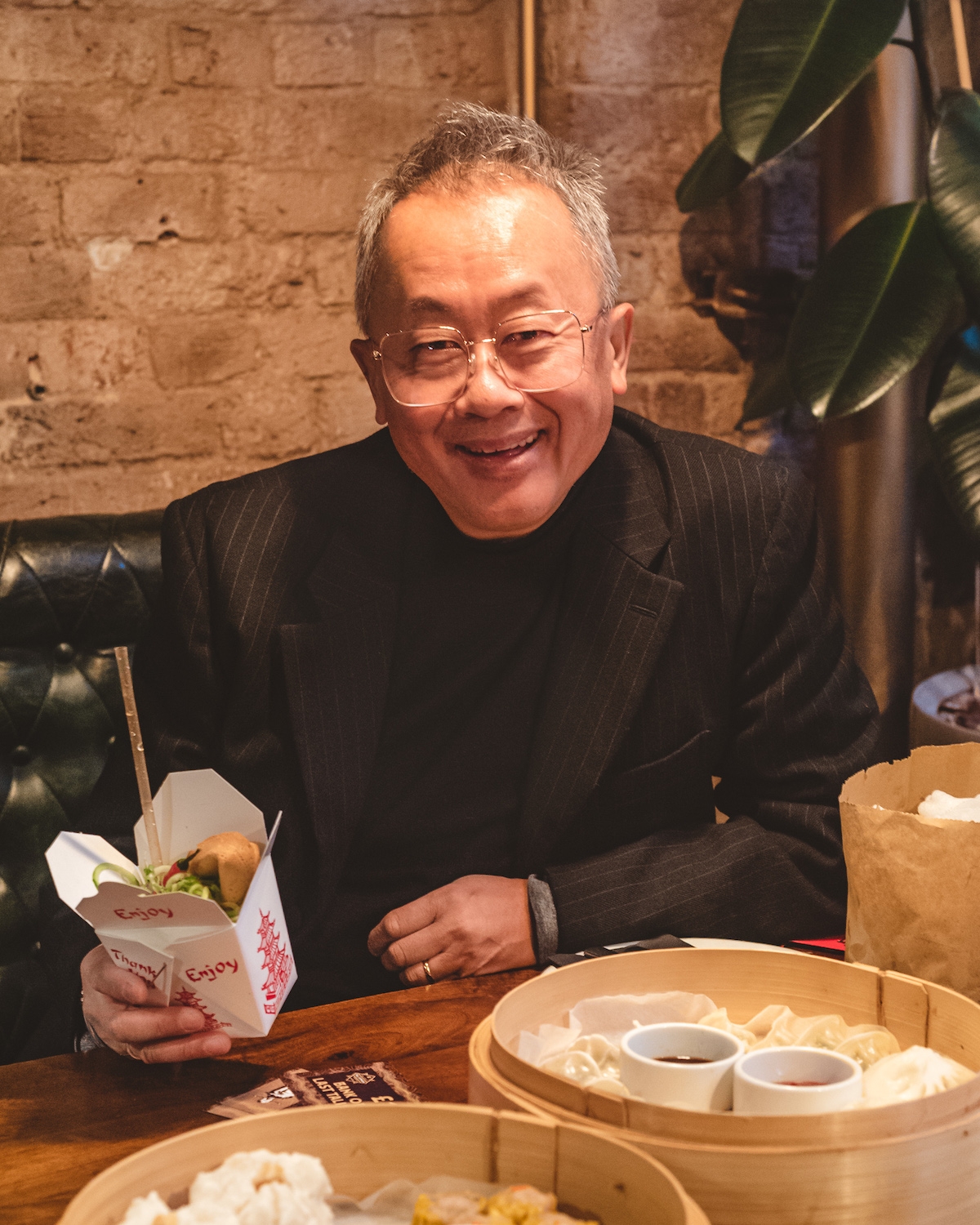 Eric Yu is founder of Opium cocktail and Dim Sum bar (Credit: Opium/ Eric Yu)
Eric Yu is founder of Opium cocktail and Dim Sum bar (Credit: Opium/ Eric Yu)
The drinks – from co-owner and cocktail connoisseur, Dre Masso – also feature typically Asian flavours, like miso, Kaffir lime and Earl Grey tea, while the dim sum are served in bamboo baskets, with bougie ingredients like truffle and samphire to make them that little bit more special.
“It was the first opportunity I had to dabble in my own heritage,” Eric says of the bar. “And that means a lot. I’m very proud to be Chinese.”
Eric moved to the UK from Hong Kong when he was seven. He went to boarding school and went on to study accounting and take a job at KPMG, before packing that in and throwing himself into the world of hospitality.
With financial know-how and a love of music and architecture, he says he figured it was a “race he could win”.
Ballsy? Sure. But he wasn’t wrong.
After setting up legendary Holborn restaurant and nightclub Villa Stefano back in 1991, it wasn’t long before he owned a whole bank of bars and restaurants – Opium being one of nine he still runs today.
 Opium serve a range of cocktails and dim sum inspired by Asian flavours (Credit: Opium/ Joanna Freedman)
Opium serve a range of cocktails and dim sum inspired by Asian flavours (Credit: Opium/ Joanna Freedman)
Having opened its doors in 2012, the Chinatown mainstay was one of the later additions to Eric’s repertoire (replacing another bar of the same name he had set up on Dean Street), but you can tell from the passion in his voice that it’s his most personal project to date.
“Before we opened, Chinatown was full of £5.50 all-you-can-eat buffets and that sort of stuff,” he says. “So I thought, let’s try and create somewhere special.”
It’s no coincidence that Eric picked this bar to house a blown up picture from his parents’ wedding on the wall.
“The whole idea was to make [Opium] somewhere that Chinese people would be proud to visit,” he says. “And my parents always instilled that pride in me.”
Emily Foo (Cuppacha)
On Chinatown’s Newport Street sits Cuppacha, a bright-pink bubble tea shop, which is as Instagrammable as its drinks.
You’ve probably heard of bubble tea now. Who hasn’t? But when owner Emily Foo first moved to the UK from Malaysia in 2000, there was a distinct lack of it on UK streets.
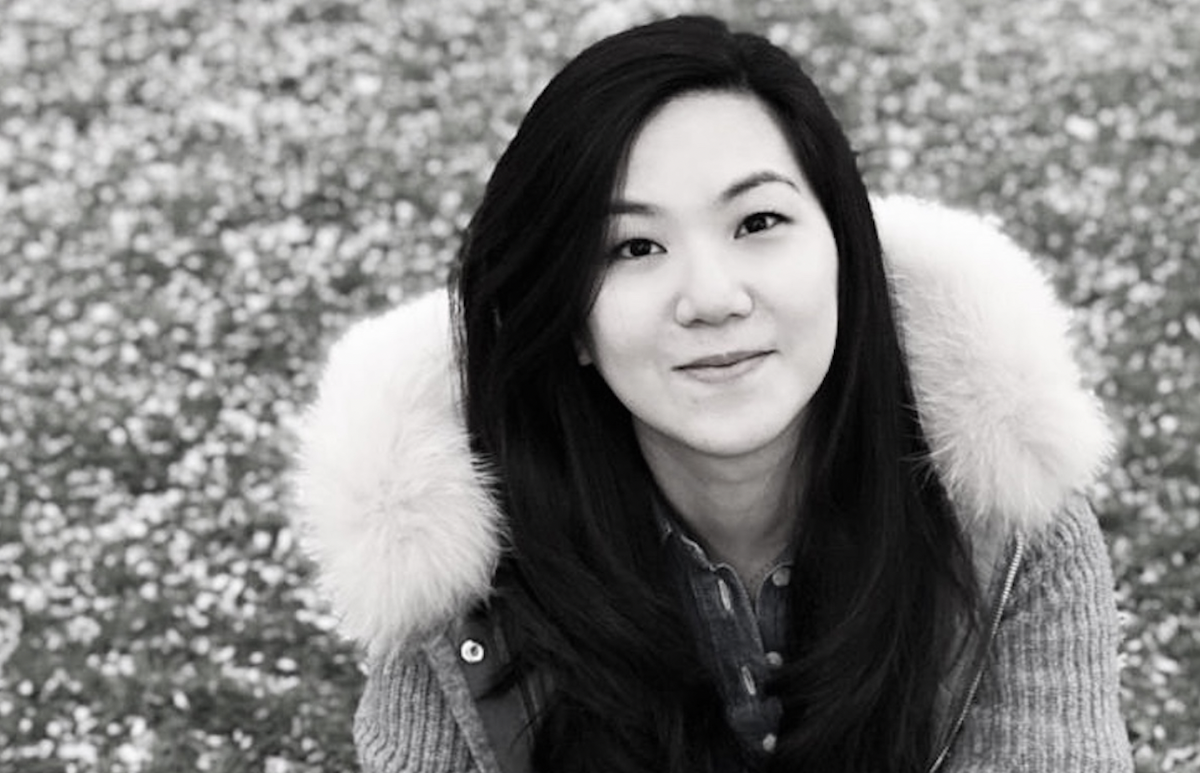 Emily is the owner of bubble tea chain, Cuppacha (Credit: Emily Foo)
Emily is the owner of bubble tea chain, Cuppacha (Credit: Emily Foo)
“At that time, there were one or two stores in London, but you mainly saw it in Chinese restaurants.
“Because [it’s so big in] Asia, I thought [a store] would be great in Chinatown, as there would be customers that are familiar with the product already,” she explains.
“But when we opened [in 2012], it was amazing to see so many customers come in who hadn’t tried it before, too, asking ‘what is this? My friends are telling me that I need to try it’.”
Bubble tea (or boba drink) is essentially chilled tea with little balls of tapioca starch in it, and it is said to have originated from a small stall in Taiwan in the early 80s.
The drink soon became so popular that it was embraced across markets all over China, and Emily remembers trying it in her early 20s, when travelling through Taiwan and Hong Kong.
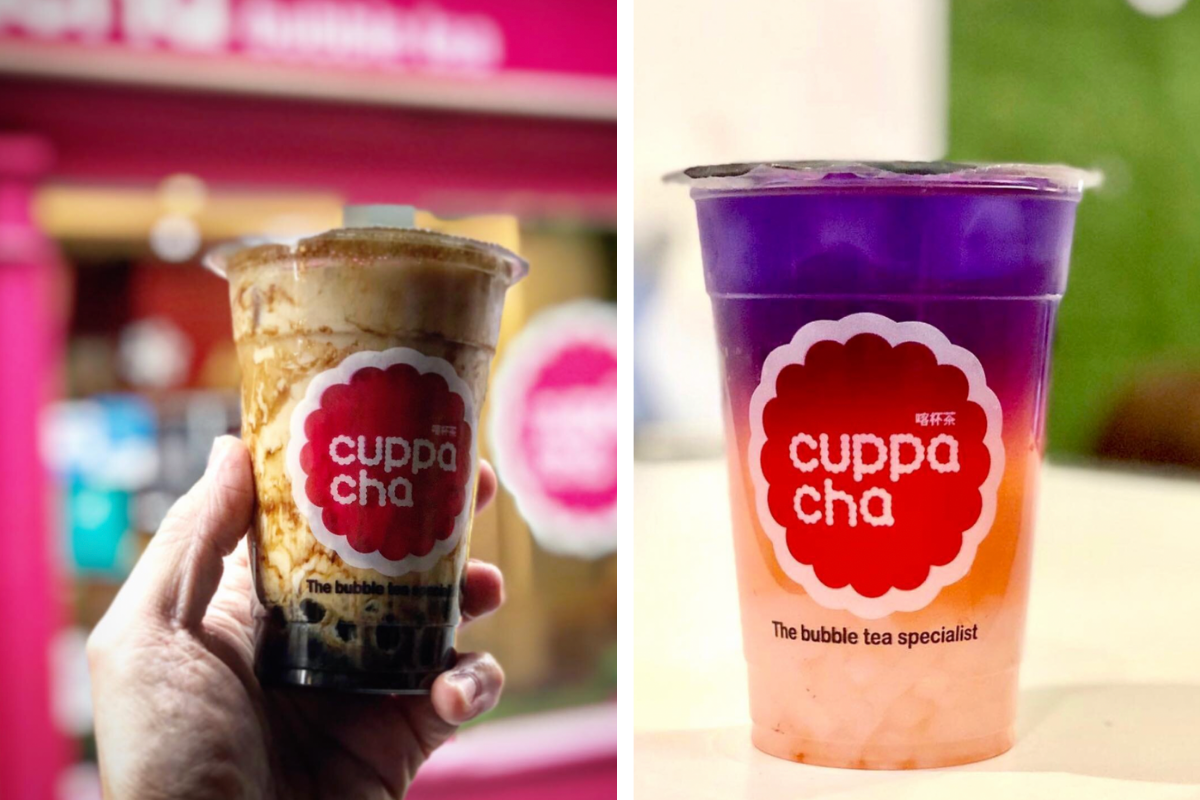 Cuppacha’s bubble tea is as colourful as its bright pink store-front (Credit: Cuppacha/ Instagram)
Cuppacha’s bubble tea is as colourful as its bright pink store-front (Credit: Cuppacha/ Instagram)
“It used to be quite basic,” she explains. “Just milk tea like we’d have here with a little bit of honey, but then you started to see different varieties as well, like taro milk tea, fruit tea [and] pure tea.
“Now you can put all sorts of flavours and toppings in there”.
In Cuppacha, you can order traditional plum green teas and ginger brews, or quirkier options, like ombre strawberry sunrise tea – all natural, would you believe, but with an aesthetic that would make any gen-z TikTokker giddy.
Of course, as popularity grew, so did the rivals.
“In the past 10 years we’ve seen a lot of competition. Too much,” she says. “But we just keep doing what we are doing.
“We see lots of customers coming back and trying different things, and that’s what’s kept us going for so many years”.
READ MORE: Have you tried Twisted’s Amoy chicken noodle twists?
Peter Ren (New China, Chinese Tapas House)
Peter Ren has been a Chinatown big-wig since 1999. He owns a hugely successful group of Chinese medical centres dotted across the area, and he’s also got his stakes in the hospitality space, as the owner of not one but two food joints: New China and Chinese Tapas House.
“I was born in a poor family in China,” Peter says. “I remember we had [food] coupons… over the course of the 60s, literally some people starved to death. So I didn’t try [a lot of different] food”.
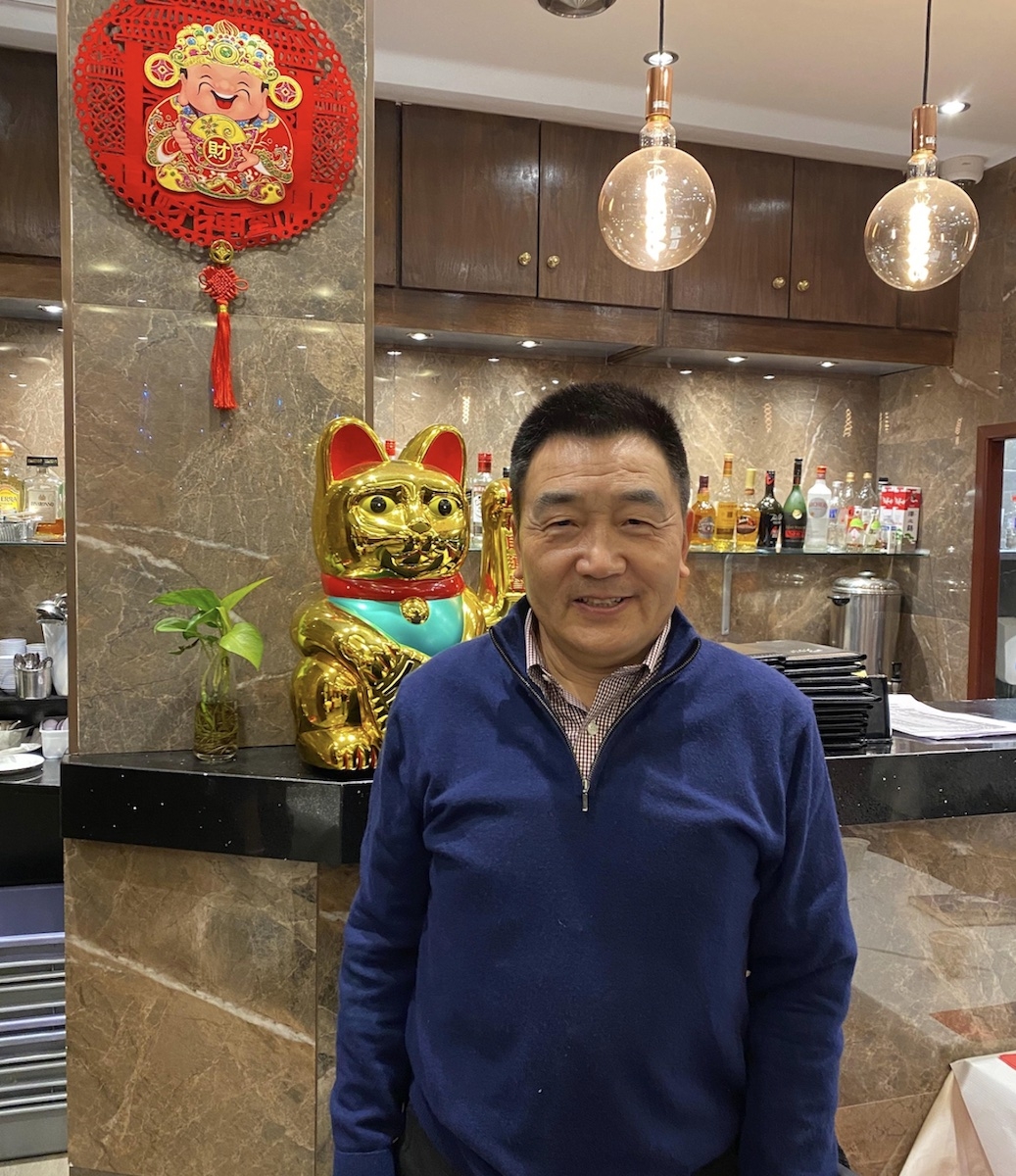 Peter Yen inside New China Restaurant (Credit: Joanna Freedman)
Peter Yen inside New China Restaurant (Credit: Joanna Freedman)
Today he wants to afford his customers the luxury he never had.
One of the first things he did when he acquired New China in 2012 was to diversify the menu, adding more regional dishes, like Sichuan hotpots, and sour cabbage from Northern China, where he spent his university days.
“I think about 70 or 80 percent of restaurants in Chinatown are doing Cantonese food. But most people who are coming in are [from mainland China], so it’s a mismatch,” he says. “We still serve lots of Cantonese dishes, [but offer] variety, too.”
As for his takeaway? It’s barely more than a hole-in-the-wall, but it has queues around the block, seeing as it’s one of the only spots to serve Jian Bing (a sort of Asian crepe which originated in the Shandong province) in the country.
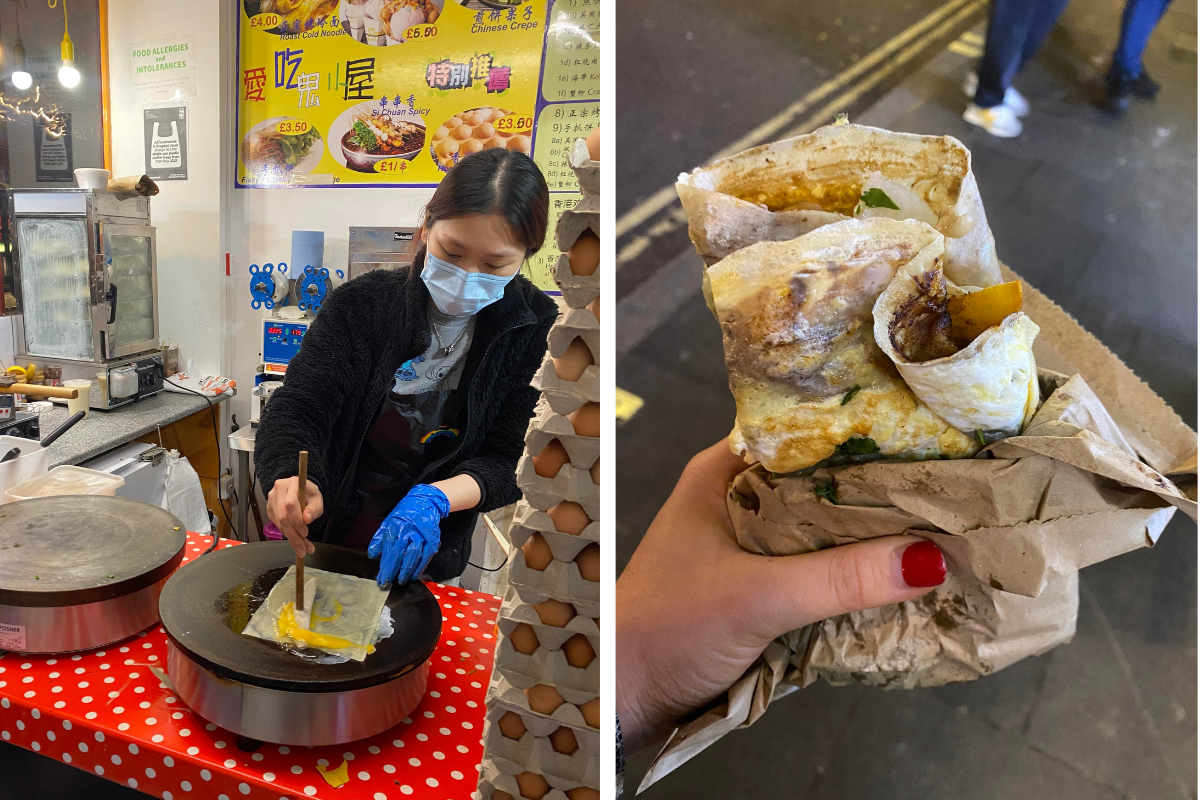 Chinese Tapas House is the only spot serving Jian Bing (Credit: Joanna Freedman)
Chinese Tapas House is the only spot serving Jian Bing (Credit: Joanna Freedman)
His menus might be impressive, but Peter is candid about the fact the last few years have been some of the hardest he’s experienced in his career – and he’s been grafting since he arrived in the UK at the age of 25.
New China shut down due to a fire in 2019, and then the pandemic struck in sync with its grand reopening.
“In the past, [if you own] a restaurant in Chinatown you will make money,” he says. “But for the last two years, overall I’m losing money.
“All the restaurant owners are struggling, because of Covid and being shut for so long, Chinese tourists can’t travel here and people aren’t working [in the city].
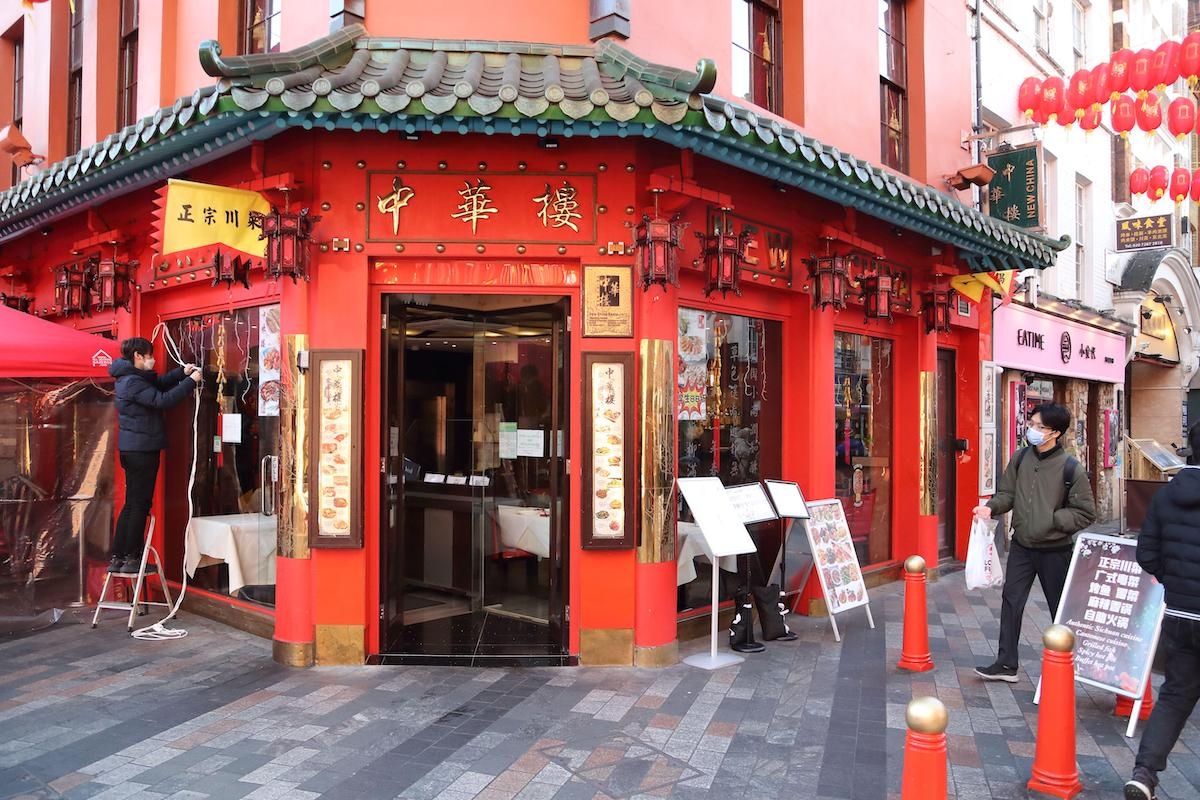 New China was subject to a fire back in 2018 (Credit: Alamy)
New China was subject to a fire back in 2018 (Credit: Alamy)
“My family back in China come from generations of restaurant owners in the Jiangsu province, near Shanghai. But I never thought I would work in restaurants. It’s very hard.
“We were just starting to get busy again before omicron…”
What does the future hold for New China and Chinese Tapas House? Time will tell. But Peter’s hopeful.
“When people ask if I’d sell the restaurant I always say ‘why would I do that?’,” he laughs.
He’s got one of the most desirable spots on Gerrard Street, his food is top-notch, and he’s still got fight in him yet.
Tony Fang (Bubblewrap)
Imagine an ice cream cone made out of waffle. Yep, that’s essentially what Tony Fang’s shop, Bubblewrap, offers.
Bubblewrap is a modern version of the Chinese egg waffles (which are a popular street-food dish in Hong Kong).
“On the markets, people didn’t want to waste any eggs,” Tony explains. “So, the street vendors created the simple recipe of mixing the eggs and flour to be in bubbly shape and sold them [as a sweet snack].”
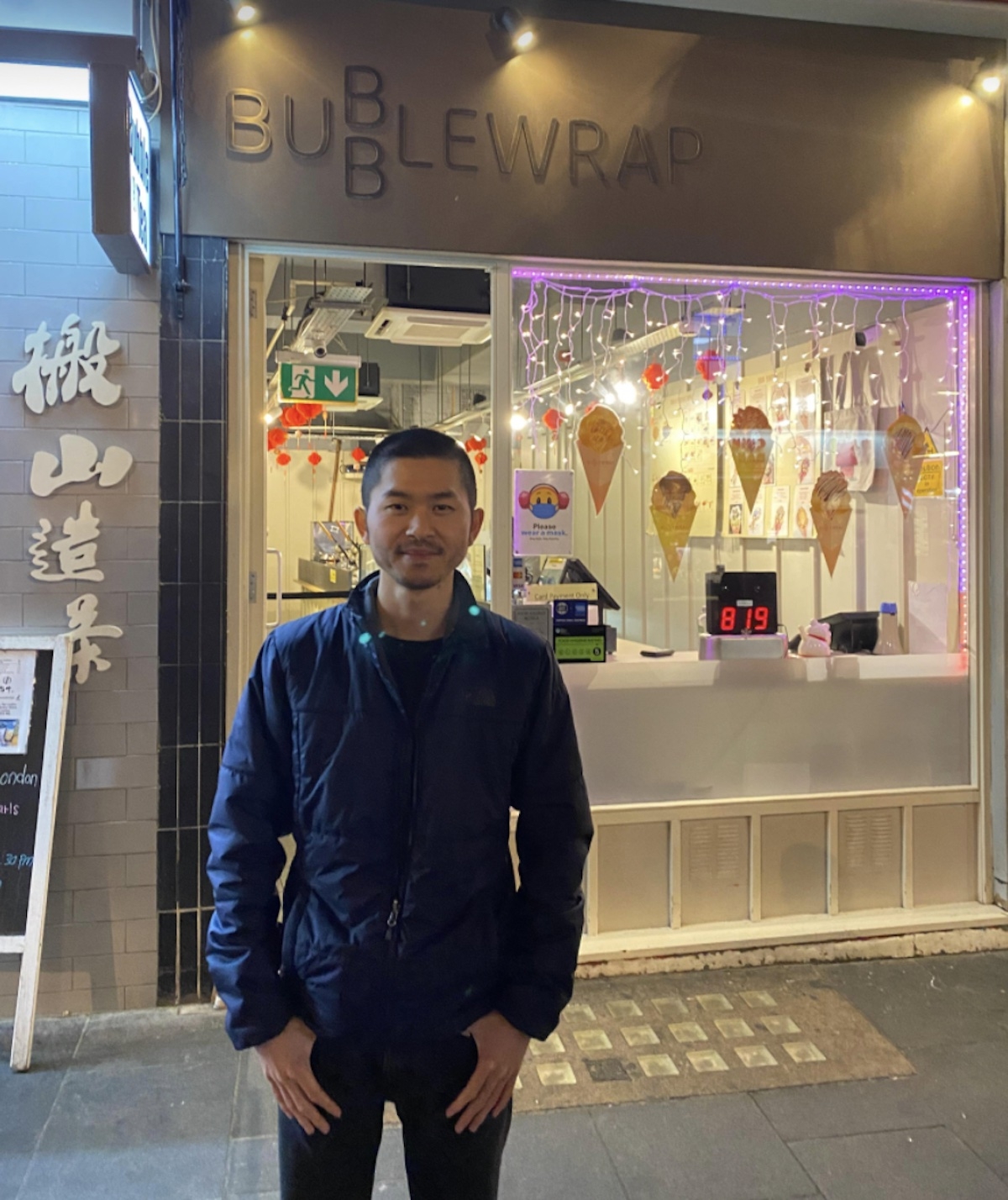 Tony Fang set up Bubblewrap straight after leaving uni (Credit: Joanna Freedman)
Tony Fang set up Bubblewrap straight after leaving uni (Credit: Joanna Freedman)
His offering is a little more indulgent, and certainly more westernised – at Bubblewrap, you can get your hands on an Oreo and ice cream filled waffle cone, or one stuffed with strawberries, whipped cream and Nutella – but it’s a homage to the original nonetheless.
Having moved to the UK from near Shanghai in 2010, Tony still remembers when he tried these waffles for the first time, at a hawker market, back home. So, when he was studying at Imperial Business School, and was given the challenge of pitching a consumer project, the idea immediately came to him.
What started out as nothing more than a uni project soon skyrocketed when they saw the potential in their idea. So, after graduating, at the age of just 24, Tony and his course-mates made Bubblewrap happen.
“You could see them in the markets and in the Chinatown stores, but people only served it in a really traditional way,” he says.
The gap in the market was there, but the next challenge was finding somewhere to rent – a seeminly impossible feat in Chinatown.
“We got a few dozen rejections,” he says. “It’s difficult to persuade a lot of landlords to take that risk, because they always want to go for safer, more traditional restaurants.”
 Bubblewrap is a modern take on Hong Kong’s egg waffle (Credit: Joanna Freedman)
Bubblewrap is a modern take on Hong Kong’s egg waffle (Credit: Joanna Freedman)
But it sure was a punt worth taking.
“We were expecting to sell 50 or 60 waffles a day, but in the end we were selling 200 or 300,” he adds.
“[I think that’s because] we’ve innovated this product in a modern way during a time when social media is so popular that people are sharing to Instagram, telling their friends and giving us exposure.
“We’ve been fortunate to get into here when we did and be given a chance”.
After a tough few years of Covid closures holding them back, Tony is keen to waste no time picking up where he left off.
“We’re hoping to launch three or four more branches this year,” he says. “And one day, we want there to be more options to customise and maybe even savoury options, too”.

.jpg_RVG9qi?tr=w-2560,f-webp,q-70)
.png_2XIXGj?tr=w-2560,f-webp,q-70)
.jpg_qa3BF9?tr=w-2560,f-webp,q-70)